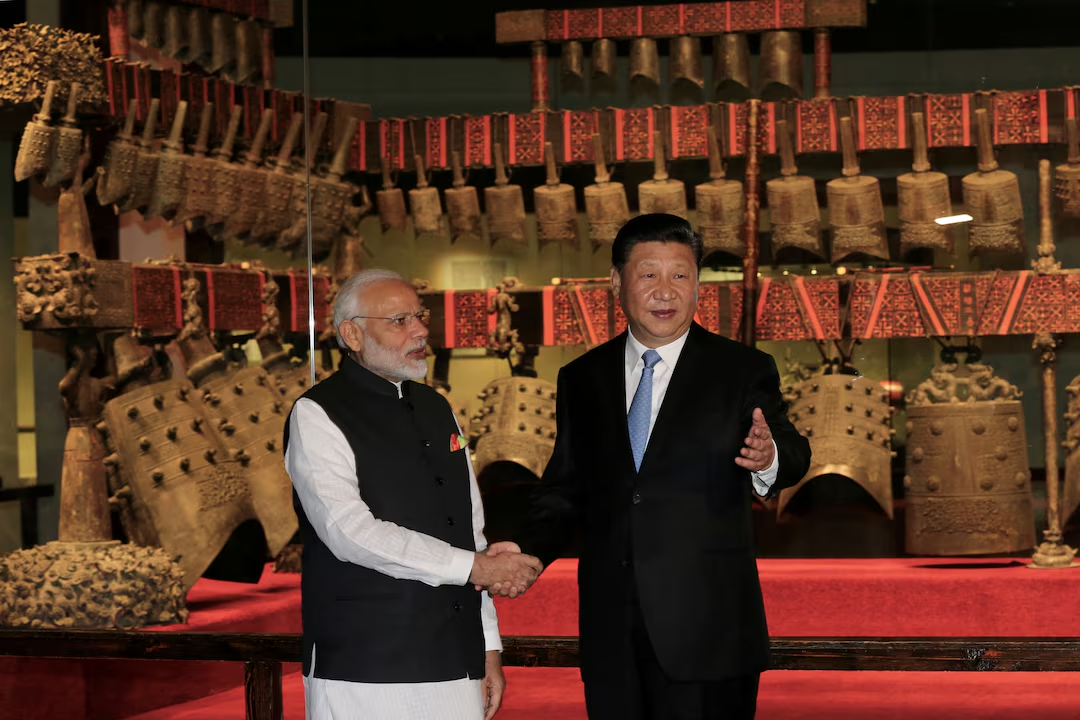Modi–Xi Meeting Underscores Urgent Need for Nations to Move Beyond Grudges in a Changing World
Prime Minister Narendra Modi met Chinese President Xi Jinping on Sunday (Aug 31) in Tianjin, China, on the sidelines of the Shanghai Cooperation Organisation (SCO) summit, marking a significant step toward recalibrating India-China relations at a time when global power structures are rapidly evolving.
During the meeting, PM Modi stressed that New Delhi is committed to advancing bilateral ties on the principles of mutual trust, respect, and sensitivity, noting that peace and stability have returned to the border regions following last year’s disengagement.
“Last year in Kazan, we had very fruitful discussions, which gave a positive direction to our relations. After the disengagement on the border, an atmosphere of peace and stability has been created,” he said in his opening remarks.
The Indian leader also highlighted key developments in the bilateral relationship, including agreements on border management, the resumption of the Kailash Mansarovar Yatra, and plans to restart direct flights between the two nations.
The interests of 2.8 billion people of both countries are linked to our cooperation. This will also pave the way for the welfare of the entire humanity,” he added, congratulating Xi Jinping on China’s successful SCO presidency.
PM Modi’s visit, his first to China in seven years, comes amid strained India-US trade ties following Washington’s imposition of tariffs on Indian goods, further underscoring the shifting dynamics of international relations and the importance of recalibrating partnerships.
President Xi, in his remarks, called for a strategic and long-term perspective in India-China relations, emphasizing the need to uphold multilateralism and champion a multipolar world.
“Both sides need to approach and handle our relationship from strategic heights and a long-term perspective to realise the sustained, sound, and steady development of our bilateral ties,” Xi said.
He further stressed that Beijing and New Delhi must work together to shoulder their historic responsibility in shaping global peace and prosperity.
“We must also step up our historic responsibility to uphold multilateralism, work together to bring about a multipolar world and more democracy in international relations, and make our due contributions to peace and prosperity in Asia and around the world,” Xi stated.
A Call for Nations to Break Free of Old Grudges
This meeting between two of Asia’s largest powers comes at a time when the world faces profound geopolitical shifts, economic challenges, and climate crises.
Against this backdrop, the need for countries to abandon grudges and rivalries that belong to another era has never been greater. The path forward demands cooperation, dialogue, and visionary leadership.
India and China—home to more than a third of humanity—are uniquely positioned to lead this transformation.
By choosing collaboration over confrontation, the two nations can not only safeguard their own stability but also lay the groundwork for a more balanced, equitable, and peaceful global order.
The Tianjin dialogue is a reminder that the future of mankind will be shaped not by division, but by unity of purpose, where historic tensions give way to collective action for global good.




